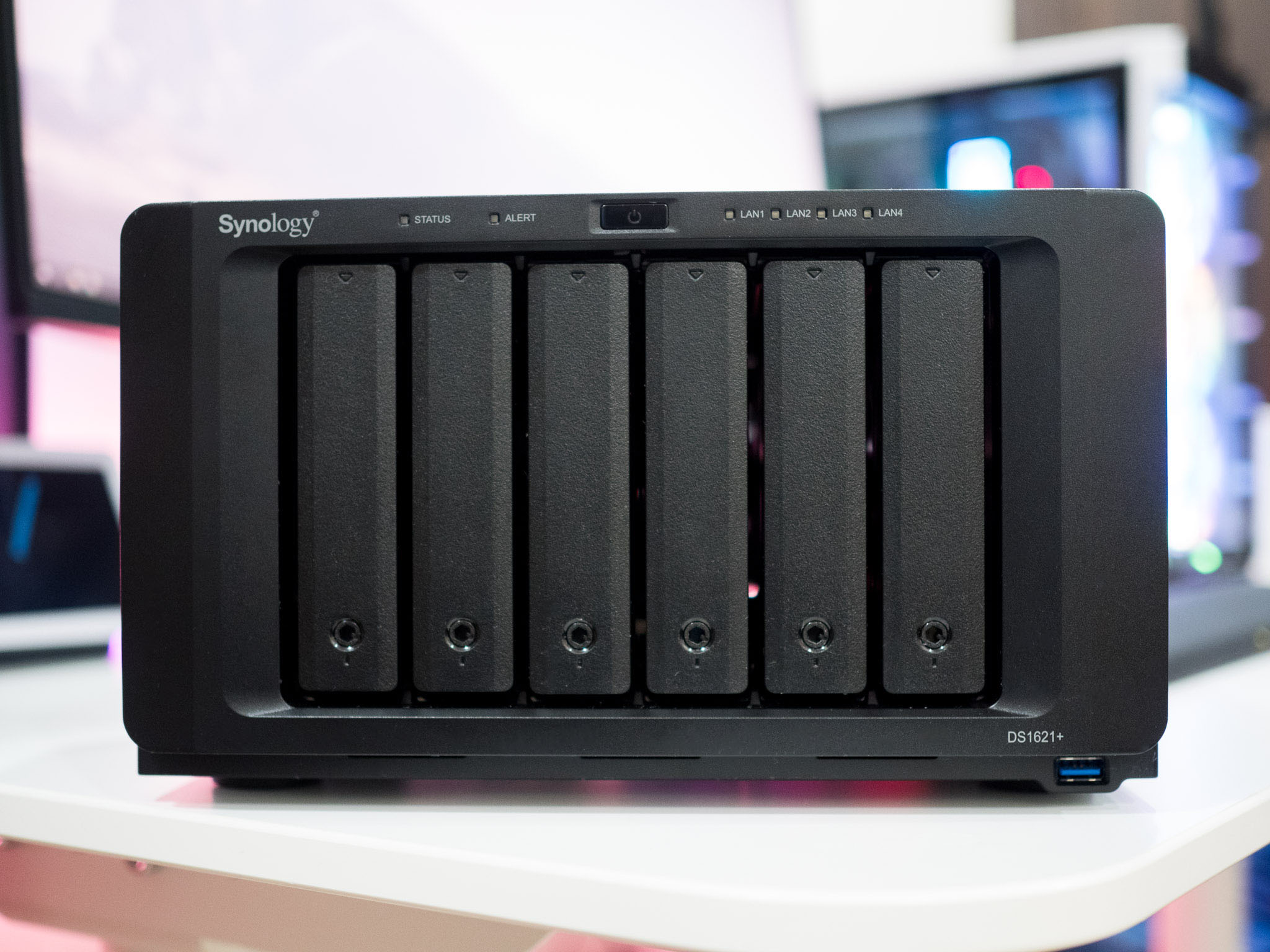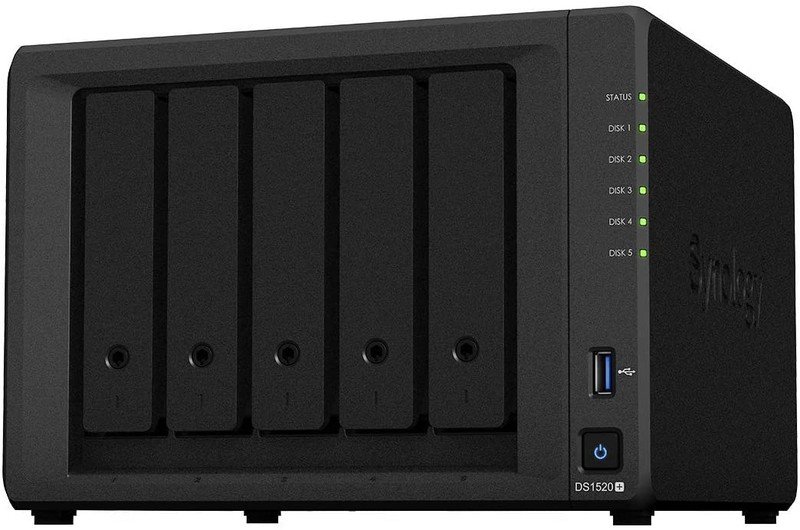No, Synology is not enforcing use of its own HDDs on DiskStation NAS models

Synology makes the best NAS for Plex and home use, and while its enclosures are popular with consumers, it does a lot of business in the enterprise segment. The company recently made its entry into the NAS HDD market by introducing its own series of hard drives labeled under the HAT5300 series, which are available in 8TB, 12TB, and 16TB storage sizes.
Synology says the drives are "high-performance enterprise hard drives specially engineered for Synology deployments," and while the drives are built by Toshiba, they feature custom firmware and are touted to deliver 23% better sustained sequential read performance versus other NAS-focused HDDs.
Because Synology now has its own range of hard drives, it is mandating that these drives be the default option for its enterprise-focused NAS models going forward. The company launched three RackStation NAS enclosures alongside the HAT5300 series — the RS4021xs+, RS3621xs+, and RS3621RPxs — and the HDD compatibility list for these models shows that the only drives validated for use above 4TB are Synology's own HAT5300 series.
That means that businesses looking to pick up a new RackStation model and pair it with a hard drive that's over 4TB will need to buy Synology's own hard drives. Businesses can choose to buy Western Digital or Seagate's 8TB or higher HDDs, but they won't be able to create storage pools with these drives.
At the outset, Synology's decision to favor its own HDDs for its enterprise models makes a lot of sense. Enclosures in the RackStation series are used by businesses and have a different service and support contract versus consumer-focused DiskStation series. Most enterprise-focused vendors in this category have a tight control over what drives businesses can use in their enclosures, and Synology is taking that same path with the HAT5300 series.
By offering its own HDDs as the de facto choice, Synology is effectively ensuring better reliability for its business-focused enclosures:
Synology can control what components we use in our NAS. We also design and thoroughly test our DiskStation Manager (DSM) operating system and software ecosystem on our devices to ensure they work well together.Compatibility tests, and the derived HCL (hardware compatibility list, also called QVL — qualified vendor list), have been a staple of Synology and other system designers. They are also notoriously hard to maintain.Even seemingly insignificant changes at the hardware or software level can introduce bigger issues down the road, especially when devices and their drives are pushed hard.To make matters worse, not all drive vendors are transparent or provide an easy way for customers to know just which hardware revision they are buying before actually receiving the product. This makes HCLs not only hard to maintain for us, but sometimes impossible to follow for our customers.Reliability requires predictability. Only by building our own drives can we ensure that customers can confidently and dependably pick the best choice.
Synology has pointed to vertical integration as being a differentiator in terms of performance, and the brand also notes that it will be able to deliver firmware updates for the HDDs alongside DSM system updates:
Get the latest news from Android Central, your trusted companion in the world of Android
Not only are you getting the most thoroughly tested solution, you're also getting the fastest hard drives available on the market for a Synology system.Tight integration with DSM also brings other benefits, like firmware upgrades that get bundled together with operating system updates. Detailed knowledge of the drives and their characteristics also means simpler troubleshooting for potential issues in the future.With fewer unknown variables in the system, we can provide better and faster support for our customers.
Making its debut in the HDD segment should prove to be a lucrative revenue stream for Synology, and businesses wouldn't think twice about paying more for these drives as they'd not risk losing data with an incompatible HDD. Ultimately, this move allows Synology to make decent inroads into the enterprise segment.
If you're wondering, this move does not mean that Synology will enforce the use of its own hard drives in its consumer-focused DiskStation models. Synology has confirmed the same to Android Central, stating that, "As of now, there's no confirmed plan of implementing the allow list policy on DS models."
So you don't have to worry about your DiskStation DS1520+ or other Plex-focused home server being incompatible with hard drives from Western Digital, Seagate, or other vendors. The policy change is solely aimed at the RackStation series, and it's business as usual with the consumer-focused DiskStation models.
Synology is in a dominant position in the home NAS market, but there's no shortage of alternatives from the likes of QNAP, TerraMaster, ASUSTOR, and others. The brand wouldn't want to risk alienating its userbase by enforcing the use of its own HDDs, because that would mean that its users would just shift to one of its rivals.

Build the ultimate Plex server
The DiskStation DS1520+ combines powerful hardware with five drive bays that can hold up to 80TB of storage, and you get four Gigabit Ethernet ports and the ability to add ten drive bays via the eSATA port. This is the ideal NAS enclosure if you're looking to build a high-end Plex server.

Harish Jonnalagadda is Android Central's Senior Editor overseeing mobile coverage. In his current role, he leads the site's coverage of Chinese phone brands, networking products, and AV gear. He has been testing phones for over a decade, and has extensive experience in mobile hardware and the global semiconductor industry. Contact him on Twitter at @chunkynerd.
